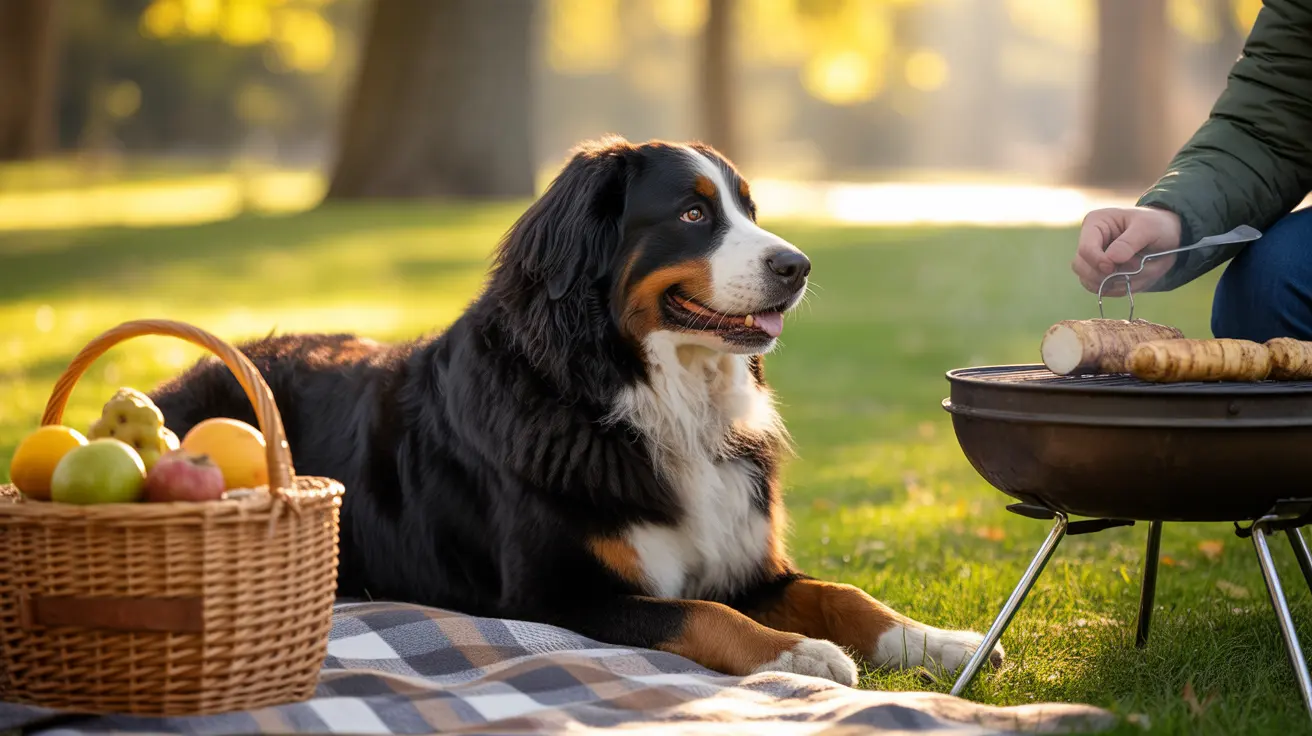Understanding Cassava and Its Properties
Cassava is a versatile root vegetable that's rich in carbohydrates and contains several important nutrients. When properly prepared, it can provide your dog with energy, fiber, and various vitamins and minerals. However, it's crucial to understand that raw cassava contains naturally occurring toxins that can be dangerous for your pet.
The Safety Concerns of Feeding Cassava to Dogs
The primary safety concern with cassava is its content of cyanogenic glycosides, compounds that can release toxic cyanide when consumed raw. These compounds are particularly concentrated in the plant's skin and raw flesh. This is why proper preparation is absolutely essential before feeding cassava to your dog.
Proper Preparation Methods
To make cassava safe for your dog:
- Peel and remove all skin
- Thoroughly wash the flesh
- Cut into small, manageable pieces
- Cook completely through boiling, steaming, or roasting
- Allow to cool before serving
Nutritional Benefits of Cassava for Dogs
When properly prepared, cassava can offer several nutritional benefits for dogs:
- High in complex carbohydrates for sustained energy
- Contains dietary fiber for digestive health
- Provides vitamin C and various minerals
- Offers resistant starch that acts as a prebiotic
- Gluten-free option for sensitive dogs
Guidelines for Feeding Cassava to Dogs
While cassava can be safe for dogs, it should only be offered as an occasional treat, not a dietary staple. Follow these guidelines:
- Start with small amounts to test tolerance
- Limit portions to prevent digestive issues
- Always serve fully cooked and cooled
- Monitor your dog for any adverse reactions
- Consider your dog's overall diet and health needs
When to Avoid Feeding Cassava
Some dogs should not be given cassava, including:
- Overweight or diabetic dogs
- Dogs with sensitive digestive systems
- Pets on specialized diets
- Dogs with certain health conditions
Frequently Asked Questions
Is cassava safe for dogs to eat, and how should it be prepared?
Yes, cassava is safe for dogs when properly prepared. Always peel, wash, and thoroughly cook the cassava before serving. Never feed raw cassava to your dog, as it contains toxic compounds that can be dangerous.
Can dogs consume raw cassava, and what are the risks?
No, dogs should never consume raw cassava. Raw cassava contains cyanogenic glycosides that can release dangerous cyanide when digested, potentially leading to severe illness or death.
How can I add cassava to my dog's diet in a healthy and balanced way?
Introduce cassava gradually as an occasional treat, ensuring it's fully cooked and served in small portions. Monitor your dog for any digestive issues and maintain it as a supplement to their regular balanced diet.
What are the nutritional benefits and drawbacks of cassava for dogs?
Benefits include complex carbohydrates, fiber, and vitamins, while drawbacks include high caloric content and limited protein. It's best used as an occasional treat rather than a primary food source.
How can I prevent cyanide poisoning if my dog accidentally eats raw cassava?
If your dog consumes raw cassava, contact your veterinarian immediately. Watch for symptoms like vomiting, lethargy, and difficulty breathing. Time is crucial in treating potential cyanide poisoning.
Conclusion
While cassava can be a safe and nutritious addition to your dog's diet when properly prepared, it's essential to follow safety guidelines and serve it in moderation. Always consult with your veterinarian before introducing new foods to your dog's diet, and remember that cassava should complement, not replace, a balanced dog food diet.






